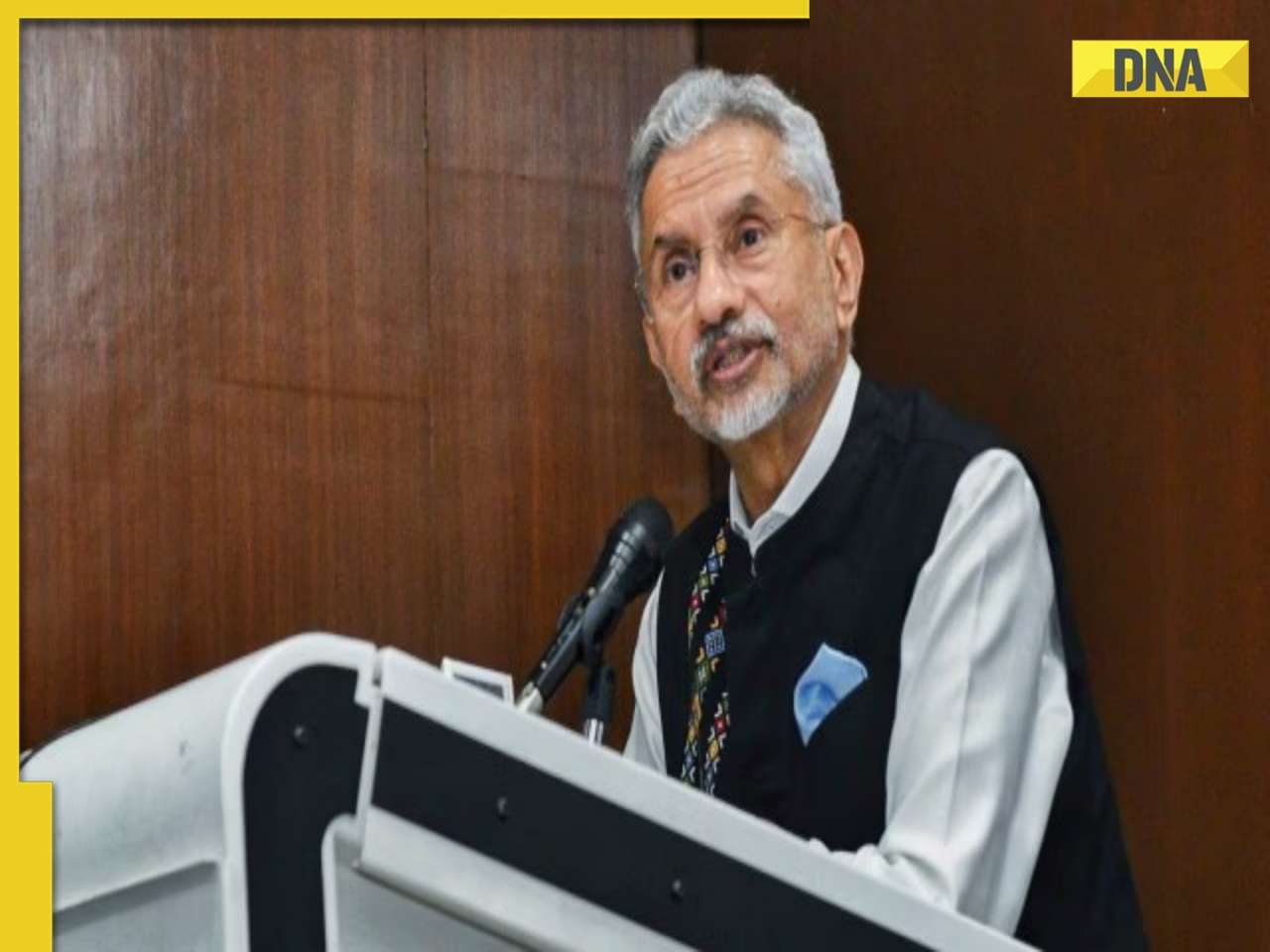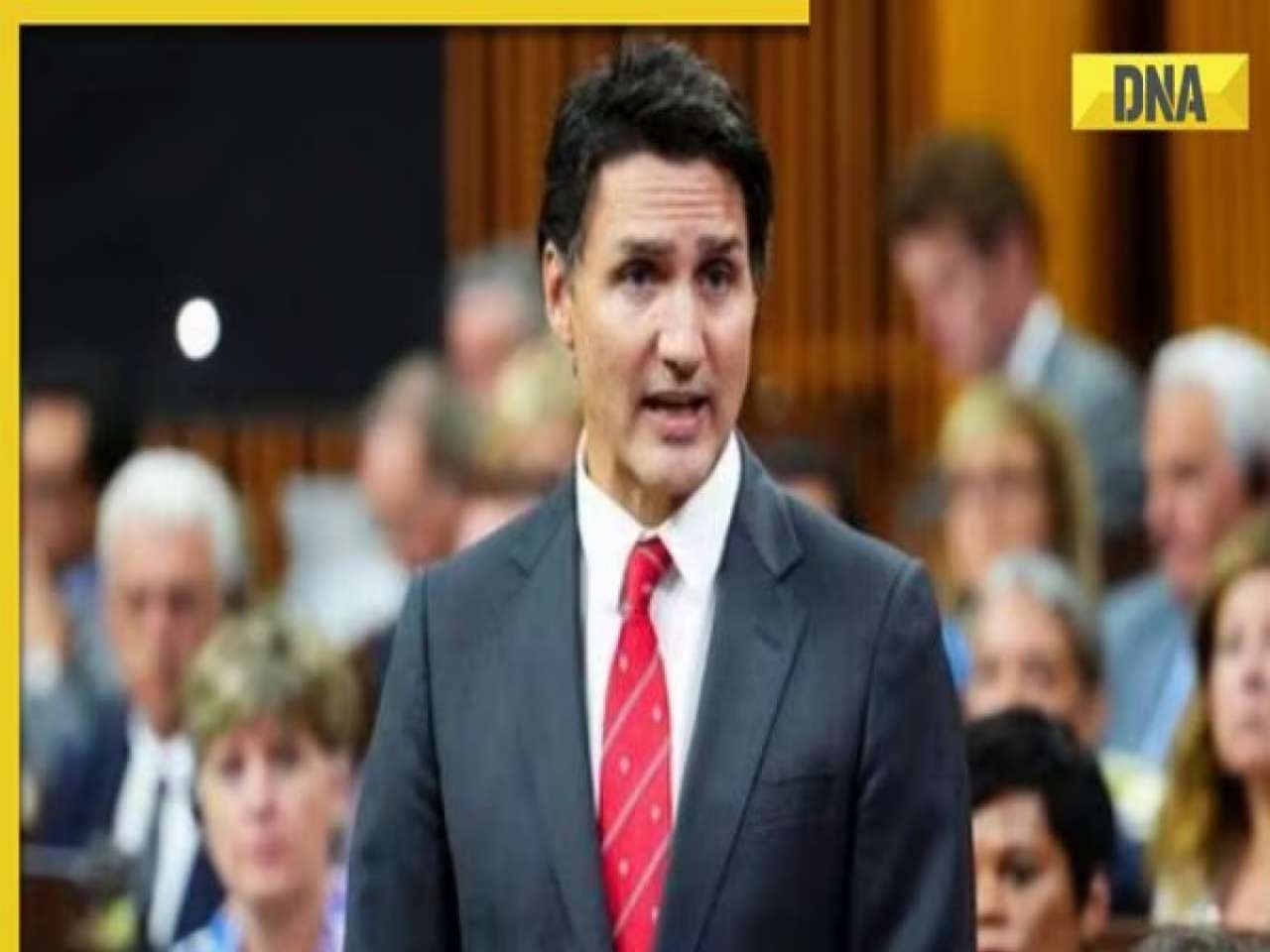The only country where military is directly meddling into the political affairs, one question arises -- Do we really have a democracy in Pakistan?
Recent developments in Pakistan can not be termed good both for the country and its neighbours like us. India and Pakistan have been at loggerheads ever since their the independence, having fought four major wars and dozens of localised conflicts. While Imran Khan made an unproven statement that his government is being targeted by another country and dissolved the National Assembly, opposition is afraid of going for elections. The only country where military is directly meddling into the political affairs, one question arises -- Do we really have a democracy in Pakistan?
To find out the answer, we need to understand first as to who yields most power in Pakistan. Is it political leadership? Is it the judiciary? Answer is a clear no. The most powerful person in Pakistan is the Army Chief, who has the power to try civilians in military court. Who has the power to pardon death sentences (in all other countries, mercy petitions are to be approved by the President) and who has the got extreme immunity under the constitution of Pakistan against any crime.
Let us analyse the centres of power right from the independence. Initial few years after independence were neutral as the administration of Pakistan was mostly led by British officers, because Pakistan remained under British monarchy till March 1956 when they adopted their first constitution. But the signs of military influence were visible right in 1951 when General Ayyub Khan took over the reins of Pakistan Army from Sir Douglas Gracey. He was the first Pakistani native to be appointed as their Army Chief and immediately after taking over, Ayyub Khan orchestrated the appointment of Malik Ghulam Mohammad as Governor General of Pakistan. Even during the rule of Iskandar Mirza, Ayyub Khan had the real control of power. He continued to be the Chief of Army till 1958, when in a military coup, he took over the reins of the country. Ayyub Khan continued his rule till 1969 when another general Yahya Khan took over the country and military rule continued.
Yahya had to resign on December 20, 1971, exactly three days after Pakistan suffered its worst and most humiliating defeat against India. So if we see the history of Pakistan until 1971, democracy did not see a ray of light. Even for a day, there was no democracy and that’s how the seeds of anarchy and military rule were laid in Pakistan.
For full 24 years, there was direct or indirect rule of military in Pakistan and their political leaders have understood well that if they have to run the country, they have to take military into confidence. Although Zulfiqar Ali Bhutto tried his best to have some kind of democracy in Pakistan and tried to establish a parliamentary system of democracy by giving more powers to an elected Prime Minister of the country but in next six years, he had to face the worst of his career. In 1977, General Zia-ul-Haque took over the country in another coup and dissolved all political institutions. He continued his rule for next 11 years till he was killed in an aircraft crash.
Democracy tried to raise itself after the death of General Zia but the governments over next 10 years saw something else. It was a period of instability where seat of power kept fluctuating between Benazir Bhutto and Mian Nawaz Sharif and despite both remained prime minister twice each during this time, none of them could have the actual power to run Pakistan. First government of Benazir was ousted in less then 2 years where Pakistan Army orchestrated her removal. Similarly, first tenure of Mian Nawaz was less then three years when he was removed by President on request of the Army. Benazir again came but the assembly was dissolved by the President in three years followed by Mian Nawaz in Oct 1997, who was also deposed in 1999 by General Parvez Musharraf and military rule continued in Pakistan for another 10 years.
After Musharraf, next 10 years were again full of disturbances where the country saw four prime ministers and each one of them was removed/deposed due to some or the other reasons. By 2018, Pakistan Army understood it well that to have their influence over the country, they must have a ruler of their choice instead of direct military rule. Military rule causes harm to the country’s image worldwide, so better to have a stooge sitting in the seat of power who can dance to the tunes of the Army Band. So, they selected Imran Khan. During the general elections 2018, Pakistan Army was deployed at all polling stations and there was large scale rigging reported across the country where Pakistan Army controlled the voters so that polling happens in the favour of Imran Khan’s Party. Imran was elected as Prime Minister and immediately returned the favour by extending the tenure of Army Chief.
So, in a nutshell, out of 75 years of Pakistan, we could see the democracy for barely 25 years which too was full of turbulences and saw nine Prime Ministers in this short time. Each of them was deposed/ removed by President or military or the Judiciary of Pakistan under the influence of Pakistan Army while the Army itself ruled the country directly or indirectly for full five decades. Interestingly, the biggest division of Pakistani Intelligence (Inter Services Intelligence of ISI) is its political division headed by a Brigadier. So was the clout of Pakistan Army that they used to tap the conversation of their own Prime Minister and when it was brought to light in 1989 during Benazir Bhutto’s first rule, even she herself could not do anything.
In the current situation too, we saw that all the decisions were directly influenced by Pakistan Army Headquarters while they are ready to rig the elections again to appoint a prime minister of their choice. Cycle will repeat itself once again. Can we have an elected Prime Minister in our western neighbourhood? Answer is a clear no. The one who is selected by Pakistan Army will rule over the country while elections will just be an eyewash.
READ | Failed no-confidence motion against Imran Khan: Analysing the four pillars of power at play in Pakistan
The author is a veteran from Armed Forces. He is a known Defence Strategist with keen interests in international affairs, maritime security, terrorism and internal security.
![submenu-img]() 'They unilaterally took some measures': EAM Jaishankar on new Nepal 100 rupee currency
'They unilaterally took some measures': EAM Jaishankar on new Nepal 100 rupee currency![submenu-img]() Meet Ice Cream Lady of India, who built Rs 6000 crore company, started with small investment of Rs…
Meet Ice Cream Lady of India, who built Rs 6000 crore company, started with small investment of Rs…![submenu-img]() ‘Canada a rule-of-law country’: PM Trudeau after 3 Indian arrested over Hardeep Nijjar's murder
‘Canada a rule-of-law country’: PM Trudeau after 3 Indian arrested over Hardeep Nijjar's murder![submenu-img]() Viral video: Specially-abled girl’s energetic dance to Bollywood song wows internet, watch
Viral video: Specially-abled girl’s energetic dance to Bollywood song wows internet, watch![submenu-img]() 'Baap re baap': Imtiaz Ali reveals Diljit Dosanjh was scandalised by old women's 'vulgar' improvisation on Chamkila set
'Baap re baap': Imtiaz Ali reveals Diljit Dosanjh was scandalised by old women's 'vulgar' improvisation on Chamkila set![submenu-img]() DNA Verified: Is CAA an anti-Muslim law? Centre terms news report as 'misleading'
DNA Verified: Is CAA an anti-Muslim law? Centre terms news report as 'misleading'![submenu-img]() DNA Verified: Lok Sabha Elections 2024 to be held on April 19? Know truth behind viral message
DNA Verified: Lok Sabha Elections 2024 to be held on April 19? Know truth behind viral message![submenu-img]() DNA Verified: Modi govt giving students free laptops under 'One Student One Laptop' scheme? Know truth here
DNA Verified: Modi govt giving students free laptops under 'One Student One Laptop' scheme? Know truth here![submenu-img]() DNA Verified: Shah Rukh Khan denies reports of his role in release of India's naval officers from Qatar
DNA Verified: Shah Rukh Khan denies reports of his role in release of India's naval officers from Qatar![submenu-img]() DNA Verified: Is govt providing Rs 1.6 lakh benefit to girls under PM Ladli Laxmi Yojana? Know truth
DNA Verified: Is govt providing Rs 1.6 lakh benefit to girls under PM Ladli Laxmi Yojana? Know truth![submenu-img]() Streaming This Week: Heeramandi, Shaitaan, Manjummel Boys, latest OTT releases to binge-watch
Streaming This Week: Heeramandi, Shaitaan, Manjummel Boys, latest OTT releases to binge-watch![submenu-img]() Remember Ayesha Kapur? Michelle from Black, here's how actress, nutrition coach, entrepreneur looks after 19 years
Remember Ayesha Kapur? Michelle from Black, here's how actress, nutrition coach, entrepreneur looks after 19 years![submenu-img]() Remember Heyy Babyy's cute 'Angel' Juanna Sanghvi? 20 year-old looks unrecognisable now, fans say 'her comeback will...'
Remember Heyy Babyy's cute 'Angel' Juanna Sanghvi? 20 year-old looks unrecognisable now, fans say 'her comeback will...'![submenu-img]() In pics: Arti Singh stuns in red lehenga as she ties the knot with beau Dipak Chauhan in dreamy wedding
In pics: Arti Singh stuns in red lehenga as she ties the knot with beau Dipak Chauhan in dreamy wedding![submenu-img]() Actors who died due to cosmetic surgeries
Actors who died due to cosmetic surgeries![submenu-img]() DNA Explainer: Why Harvey Weinstein's rape conviction was overturned, will beleaguered Hollywood mogul get out of jail?
DNA Explainer: Why Harvey Weinstein's rape conviction was overturned, will beleaguered Hollywood mogul get out of jail?![submenu-img]() What is inheritance tax?
What is inheritance tax?![submenu-img]() DNA Explainer: What is cloud seeding which is blamed for wreaking havoc in Dubai?
DNA Explainer: What is cloud seeding which is blamed for wreaking havoc in Dubai?![submenu-img]() DNA Explainer: What is Israel's Arrow-3 defence system used to intercept Iran's missile attack?
DNA Explainer: What is Israel's Arrow-3 defence system used to intercept Iran's missile attack?![submenu-img]() DNA Explainer: How Iranian projectiles failed to breach iron-clad Israeli air defence
DNA Explainer: How Iranian projectiles failed to breach iron-clad Israeli air defence![submenu-img]() 'Baap re baap': Imtiaz Ali reveals Diljit Dosanjh was scandalised by old women's 'vulgar' improvisation on Chamkila set
'Baap re baap': Imtiaz Ali reveals Diljit Dosanjh was scandalised by old women's 'vulgar' improvisation on Chamkila set![submenu-img]() This actor, who worked with Karan Johar and Farhan Akhtar, gave superhit shows, saw failed marriage, killed himself at..
This actor, who worked with Karan Johar and Farhan Akhtar, gave superhit shows, saw failed marriage, killed himself at..![submenu-img]() Did you know Ranveer Singh's grandmother was popular actress? Worked with Raj Kapoor; her career affected due to...
Did you know Ranveer Singh's grandmother was popular actress? Worked with Raj Kapoor; her career affected due to...![submenu-img]() India's highest-paid TV actress began working at 8, her Bollywood films flopped, was seen in Bigg Boss 1, now charges...
India's highest-paid TV actress began working at 8, her Bollywood films flopped, was seen in Bigg Boss 1, now charges...![submenu-img]() Shreyas Talpade wonders if his heart attack was due to Covid vaccine: 'We don’t know what we have taken inside...'
Shreyas Talpade wonders if his heart attack was due to Covid vaccine: 'We don’t know what we have taken inside...'![submenu-img]() IPL 2024: Faf du Plessis, Virat Kohli help Royal Challengers Bengaluru defeat Gujarat Titans by 4 wickets
IPL 2024: Faf du Plessis, Virat Kohli help Royal Challengers Bengaluru defeat Gujarat Titans by 4 wickets![submenu-img]() IPL 2024: Why is Sai Kishore not playing today's RCB vs GT match?
IPL 2024: Why is Sai Kishore not playing today's RCB vs GT match?![submenu-img]() 'Mumbai Indians ki kahani khatam': Ex-India star slams Hardik Pandya after MI's loss to KKR at Wankhede
'Mumbai Indians ki kahani khatam': Ex-India star slams Hardik Pandya after MI's loss to KKR at Wankhede![submenu-img]() LSG vs KKR, IPL 2024: Predicted playing XI, live streaming details, weather and pitch report
LSG vs KKR, IPL 2024: Predicted playing XI, live streaming details, weather and pitch report![submenu-img]() LSG vs KKR IPL 2024 Dream11 prediction: Fantasy cricket tips for Lucknow Super Giants vs Kolkata Knight Riders
LSG vs KKR IPL 2024 Dream11 prediction: Fantasy cricket tips for Lucknow Super Giants vs Kolkata Knight Riders![submenu-img]() Viral video: Specially-abled girl’s energetic dance to Bollywood song wows internet, watch
Viral video: Specially-abled girl’s energetic dance to Bollywood song wows internet, watch![submenu-img]() Viral video: Man educates younger brother about mensuration, internet is highly impressed
Viral video: Man educates younger brother about mensuration, internet is highly impressed![submenu-img]() Girl's wedding dance to Haryanvi song interrupted by mother in viral video, internet reacts
Girl's wedding dance to Haryanvi song interrupted by mother in viral video, internet reacts![submenu-img]() Viral video: Man fearlessly grabs dozens of snakes, internet is scared
Viral video: Man fearlessly grabs dozens of snakes, internet is scared![submenu-img]() This mysterious mobile phone number was suspended after three users...
This mysterious mobile phone number was suspended after three users...







































)









)
)
)
)
)
)